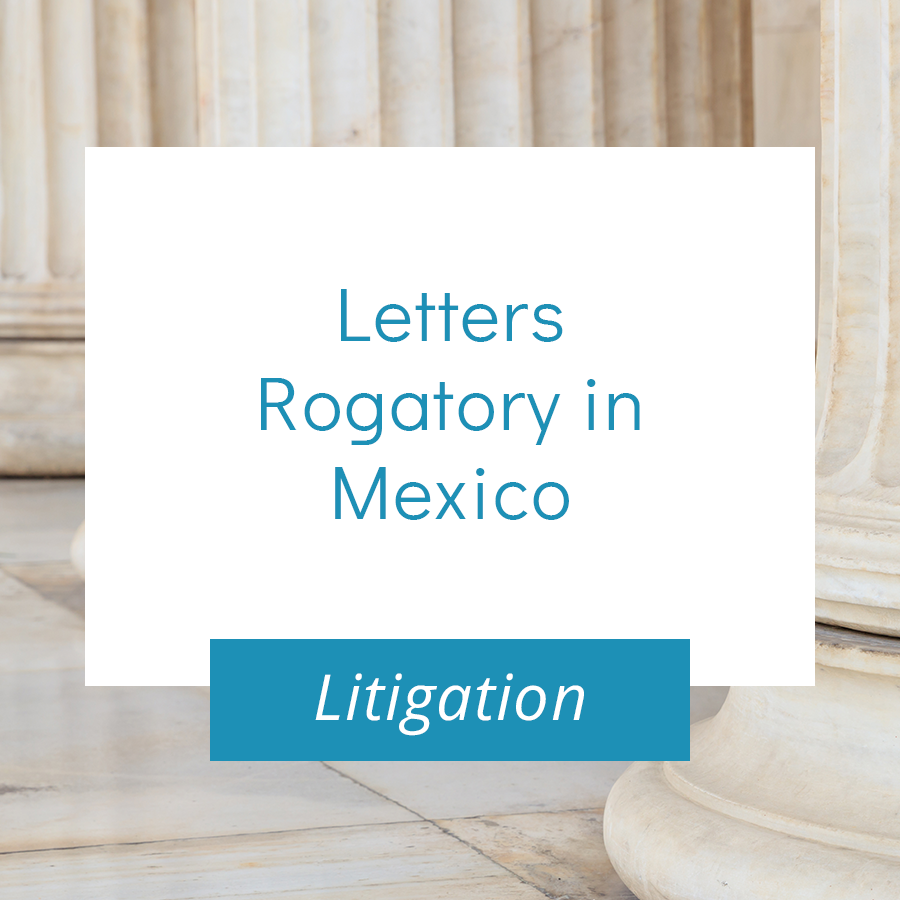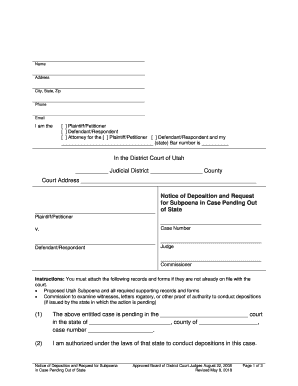Letters Rogatory Explained: Facilitating Legal Participation In Between Countries

Meaning of Letters Rogatory
Letters rogatory are official requests made by a court in one jurisdiction to a court in an additional jurisdiction, seeking aid in obtaining evidence or testament for a legal action. This step-by-step device is important in the context of worldwide legislation, where legal systems may vary, and cross-border teamwork is necessary. Letters rogatory assist in the celebration of information that may be vital for adjudicating situations, specifically in circumstances involving complicated global problems.
Typically, these requests occur in civil, criminal, or administrative issues where an event requires evidence that is situated outside the jurisdiction of the requesting court. The letters act as a way to make sure that the concepts of due procedure are promoted, enabling courts to gain access to proof that might or else stay hard to reach as a result of geographic or lawful barriers.
Using letters rogatory is controlled by international treaties, bilateral agreements, or domestic legislations, which define the procedures and responsibilities of the courts included. It is essential to note that the execution of such requests is not guaranteed; they depend upon the regulations and techniques of the territory getting the letter. Thus, letters rogatory are a pivotal tool for cultivating lawful teamwork and ensuring justice across boundaries.
The Refine of Issuing Letters Rogatory
Issuing letters rogatory entails a structured process that guarantees compliance with both residential and global legal criteria. Originally, the requesting celebration, usually a court or legal authority, prepares an official demand outlining the nature of the support sought, the evidence or information required, and the legal basis for the demand. This record needs to be precise to help with understanding by the international territory.

The next action entails sending the letters rogatory to the marked foreign authority. This is often done via polite channels or worldwide lawful assistance structures, making certain that the demand is gotten and acknowledged by the foreign court. The foreign court after that refines the request according to its own legal procedures, ultimately replying to the asking for celebration with the in-demand information or evidence, therefore helping with international lawful participation.
Relevance in International Legislation
The importance of letters rogatory in international regulation can not be overemphasized, as they offer as a critical system for judicial collaboration across borders. These official requests for assistance in lawful look at here matters enable courts in one territory to look for information, proof, or the existence of witnesses from another jurisdiction, thereby promoting the administration of justice in transnational cases.
Letters rogatory are particularly crucial in the context of globalization, where legal disagreements typically extend several countries. They allow the collection of evidence that may otherwise be hard to reach, making sure that legal procedures are informed and reasonable. By promoting collaboration between judicial systems, letters rogatory aid support the rule of legislation and advertise mutual respect among countries.
Moreover, the usage of letters rogatory shows a commitment to worldwide standards and concepts of collaboration, showing the interconnected nature of modern-day legal methods. It shows the importance of sticking to established procedures and treaties, such as the Hague Convention, which gives a structure for these requests - Letters rogatory. Eventually, letters rogatory boost the efficacy of legal processes, guaranteeing that justice is not prevented by geographical borders
Challenges and Limitations
In spite of their value, letters rogatory face a number of obstacles and limitations that can hinder their efficiency. One main problem is the differing legal frameworks and treatments across territories, which can result in misunderstandings and delays in the execution of requests. Different countries may have distinct demands for the credibility of letters rogatory, making complex the procedure better.
In addition, the usually protracted nature of international legal teamwork can hinder timely access to evidence or witnesses. This delay may detrimentally impact legal proceedings or ongoing examinations, specifically in instances calling for immediate activity. Additionally, the absence of sources and training in some territories can lead to inadequate handling of requests, leading to incomplete or poor responses.
Nations with less formal lawful systems may struggle to abide with the procedural rigor anticipated in letters rogatory. These challenges require continual dialogue and reform to improve the efficiency of letters rogatory in legal teamwork.
Study and Instances

Conversely, obstacles can occur, as seen in an instance involving a European country seeking proof in an ongoing criminal issue from a non-EU i loved this country - Letters rogatory. The process was delayed due to governmental hurdles and differing lawful criteria, ultimately impeding the examination
These examples show that while letters rogatory can promote international cooperation and speed up lawful process, they additionally highlight the need for clear communication and understanding of legal structures between nations. Such situation studies emphasize the significance of refining this tool to improve performance and performance in international legal issues.
Final Thought
In recap, letters rogatory act as a crucial system for facilitating lawful cooperation between nations, making sure the collection of evidence and statement across jurisdictions. Their value in international legislation can not be overstated, as they promote due procedure and boost the efficiency of cross-border legal procedures. Nonetheless, challenges such as differing political stress and lawful frameworks may hinder their performance. Proceeded initiatives to enhance and boost the visit the website procedure are crucial for promoting stronger international judicial collaboration.
Letters rogatory are formal demands made by a court in one territory to a court in another territory, seeking assistance in acquiring proof or statement for a lawful proceeding. The requesting party, commonly a court or legal authority, prepares an official request describing the nature of the assistance looked for, the proof or details needed, and the legal basis for the demand. The international court then refines the demand according to its very own legal treatments, ultimately reacting to the asking for event with the popular details or evidence, hence assisting in worldwide lawful cooperation.
Additionally, the use of letters rogatory demonstrates a commitment to global standards and principles of teamwork, reflecting the interconnected nature of contemporary legal practices.Worldwide lawful cooperation with letters rogatory is not without its real-world implications, as illustrated by numerous instance studies that highlight both successes and difficulties.